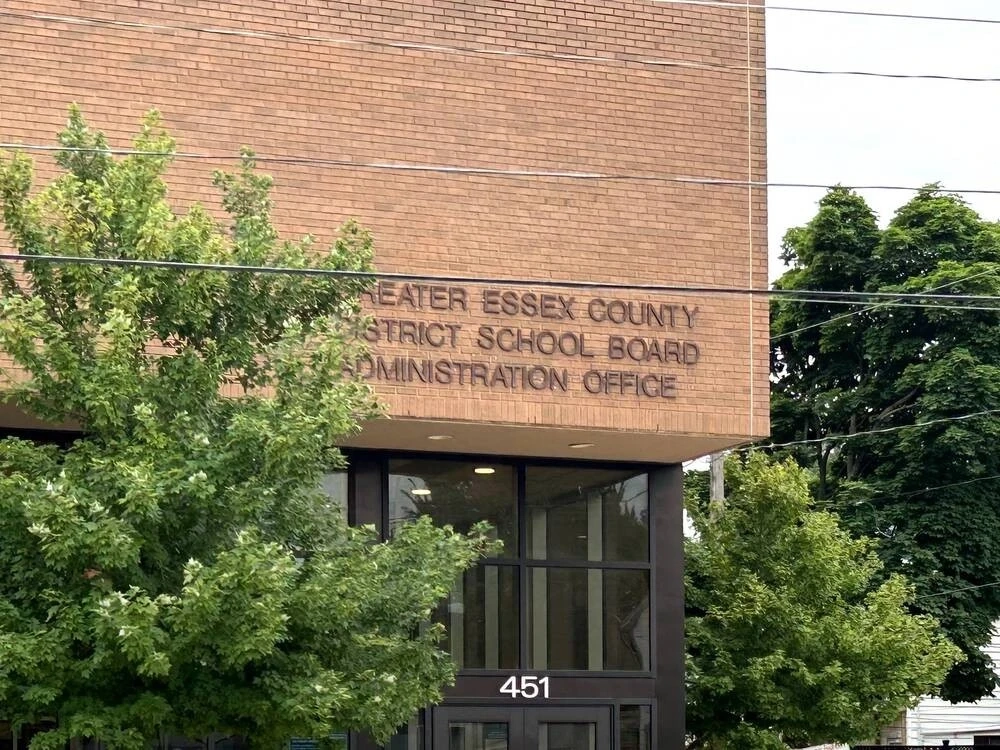 The Park Street West offices of the Greater Essex County District School Board in downtown Windsor. Photo by Brian MacLeod /Windsor Star
The Park Street West offices of the Greater Essex County District School Board in downtown Windsor. Photo by Brian MacLeod /Windsor Star Facing increasing expenses and declining enrolment, the Windsor-Essex public school board has reduced its deficit to less than $1 million for the 2025-26 school year, following a provincial directive to eliminate its deficit by the 2026-27 year.
The Greater Essex County District School Boards $545.8-million budget approved June 17 includes cuts announced last year in the boards Multi-Year Financial Recovery Plan.
This advertisement has not loaded yet, but your article continues below.

Subscribe now to read the latest news in your city and across Canada.
- Unlimited online access to articles from across Canada with one account.
- Get exclusive access to the Windsor Star ePaper, an electronic replica of the print edition that you can share, download and comment on.
- Enjoy insights and behind-the-scenes analysis from our award-winning journalists.
- Support local journalists and the next generation of journalists.
- Daily puzzles including the New York Times Crossword.
Subscribe now to read the latest news in your city and across Canada.
- Unlimited online access to articles from across Canada with one account.
- Get exclusive access to the Windsor Star ePaper, an electronic replica of the print edition that you can share, download and comment on.
- Enjoy insights and behind-the-scenes analysis from our award-winning journalists.
- Support local journalists and the next generation of journalists.
- Daily puzzles including the New York Times Crossword.
Create an account or sign in to continue with your reading experience.
- Access articles from across Canada with one account.
- Share your thoughts and join the conversation in the comments.
- Enjoy additional articles per month.
- Get email updates from your favourite authors.
Create an account or sign in to continue with your reading experience.
- Access articles from across Canada with one account
- Share your thoughts and join the conversation in the comments
- Enjoy additional articles per month
- Get email updates from your favourite authors
Those cuts include reducing one of the boards special education programs, eliminating the international baccalaureate program, eliminating French immersion at two schools, and fewer social workers, psychologists, speech-language pathologists and communication-disorder assistants.
The budget containing an $889,000 deficit, comes after an Education Ministry order to eliminate what is said was a $6.4-million structural deficit in 2024-25.
Cuts to staff and special education programs coming as the board faces increasing costs for supply teachers, pensions, transportation and other expenses caused some board members to express their frustration as they approved the budget.
Trustee Kim McKinley, pointing to a funding gap of $9.7 million in pension plan costs and more than $7 million in supply staff costs, said the ministry is underfunding the school board, so she would not vote to pass the budget.
We do not truly have a structural deficit problem. What we have is a Ministry of Education funding problem, McKinley said. The budget deficit we are experiencing is far more about the lack of provincial funding that we are receiving than it is about having a structural deficit.
McKinley said she wouldnt approve a budget that will impact our students in numerous ways, while these funding gaps from the ministry continue to affect our budget substantially.
Indicating he would support the budget, trustee Ron LeClair said chronic, intentional underfunding to areas that we have little control over puts us into a deficit despite our efforts not to be there.
He cited a deficit in supply staff and transportation funding, despite a regulatory mandate to provide the bus service. Imagine if this board decided to say, well, we need to stop student transportation because we need to fund our schools, LeClair said. Imagine if we did that a response that we would get, not only from parents, but from the province.
How do we highlight how desperate our situation is? And its not just us. Every school board in this province is facing a funding crisis.
Forty-two of the provinces 72 school boards are said to be in a deficit.
Trustee Julia Burgess also supported the budget, because failure to approve it would result in provincial supervision, which would remove decision-making from local trustees.
This stinks less than supervision, and I can say that because, having spoken with the boards who have been and who are right now under supervision, Burgess said, adding supervision gives the ministry total control over the boards finances.
She lamented cuts to special education, which were identified last year in the Multi-Year Deficit Reduction Plan.
Trustee Linda Qin asked the board to determine the reason behind several years of declining enrolment at the board.
Listen to the parents, especially the parents who move their kids out of our board, and see whats their concerns, she said.
In the past, some speakers who appeared before the board have pointed to its gender and diversity policies as one of the reasons for dropping enrolment, though a definitive link has not been established.
The boards 2025-26 enrolment is projected to be 34,699, down 954 from last years budget. Elementary school enrolment is down 521, while secondary school enrolment is down 463.
The budget report identifies $28 million in shortfall funding from the province, including $8.7 million for special education, $7.2 million for supply staff, $9.7 million for statutory benefits (including pensions), $1.6 million for transportation and $776,000 for j ustice inclusion, equity and diversity initiatives.
The budget passed with LeClair, Burgess, Christie Nelson, Connie Buckler, Malek Mekawi and Nancy Armstrong in favour, and McKinley and Qin opposed.
 Local News
Local News ![Former Windsor Spitfires' goalie Mikey DiPietro opted to remain with the Boston Bruins organization rather than test free agency. (NICK PROCAYLO/PNG) 00063466A ORG XMIT: 00063466A [PNG Merlin Archive]](https://news-cdn.s3.amazonaws.com/content/1751319968-MurnwR6qed.webp) Sports
Sports  Local News
Local News  Local News
Local News  Local News
Local News 


